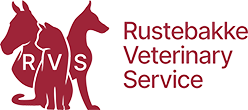





- Spay and Neuter
- Mass Removals
- Laceration Repairs
- Tail Docking/Removal & Dewclaw
- Gastropexy
- Enucleation
- Soft Tissue Procedures
- Orthopedic Procedures
- Spay and Neuter
- Mass Removals
- Laceration Repairs
- Tail Docking/Dewclaw
- Removal
- Gastropexy
- Enucleation
- Soft Tissue Procedures
- Orthopedic Procedures



 Vaccinations and herd health plans
Vaccinations and herd health plans Breeding Services
Breeding Services Pasture permits, Health certificates and Coggins
Pasture permits, Health certificates and Coggins Radiographs
Radiographs Soft Tissue Surgery
Soft Tissue Surgery Brand inspections for Washington State Only
Brand inspections for Washington State Only Floats and Large Animal Dentistry
Floats and Large Animal Dentistry Joint injections
Joint injections Lameness and orthopedic evaluations
Lameness and orthopedic evaluations Emergency Services
Emergency Services
 Brand inspections for Washington State Only
Brand inspections for Washington State Only Floats and Large Animal Dentistry
Floats and Large Animal Dentistry Joint injections
Joint injections Lameness and orthopedic evaluations
Lameness and orthopedic evaluations Emergency Services
Emergency Services
- Your pet should not have anything to eat after midnight the night before the surgery. This fasting period helps prevent complications during anesthesia.
- Take your pet for a short walk in the morning to allow them to relieve themselves. A brief stroll can help your pet stay relaxed and prevent anxiety.
- Arrive at the veterinary clinic at the designated time provided by the clinic staff. Punctuality is crucial to ensure that the pre-surgery preparations can proceed smoothly.


- Communicate Any Changes: Inform the veterinary staff of any changes in your pet’s health or behavior since the initial consultation. This includes changes in appetite, behavior, or any signs of illness.
- Follow Pre-Surgery Instructions: If your veterinarian has provided specific pre-surgery instructions, such as administering medication, make sure to follow them precisely.
- Review Post-Surgery Care: Take a moment to discuss post-surgery care instructions with the veterinary staff. Understand any medications that may be prescribed and inquire about any special care your pet may require during the recovery period.
- Communicate Any Changes: Inform the veterinary staff of any changes in your dog’s health or behavior since the initial consultation. This includes changes in appetite, behavior, or any signs of illness.
- Follow Pre-Surgery Instructions: If your veterinarian has provided specific pre-surgery instructions, such as administering medication, make sure to follow them precisely.
- Review Post-Surgery Care: Take a moment to discuss post-surgery care instructions with the veterinary staff. Understand any medications that may be prescribed and inquire about any special care your dog may require during the recovery period.

Here For You
Remember, the veterinary clinic staff is there to guide you and ensure the well-being of your pet throughout the surgical process. Following these instructions will contribute to a successful and safe surgical experience for your furry companion.


